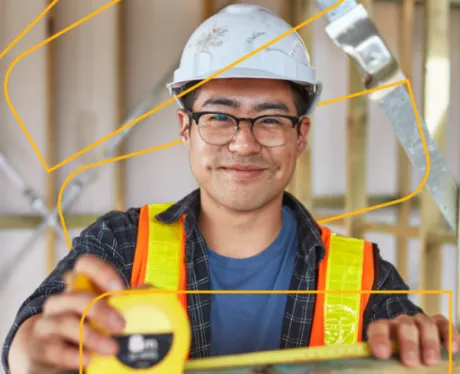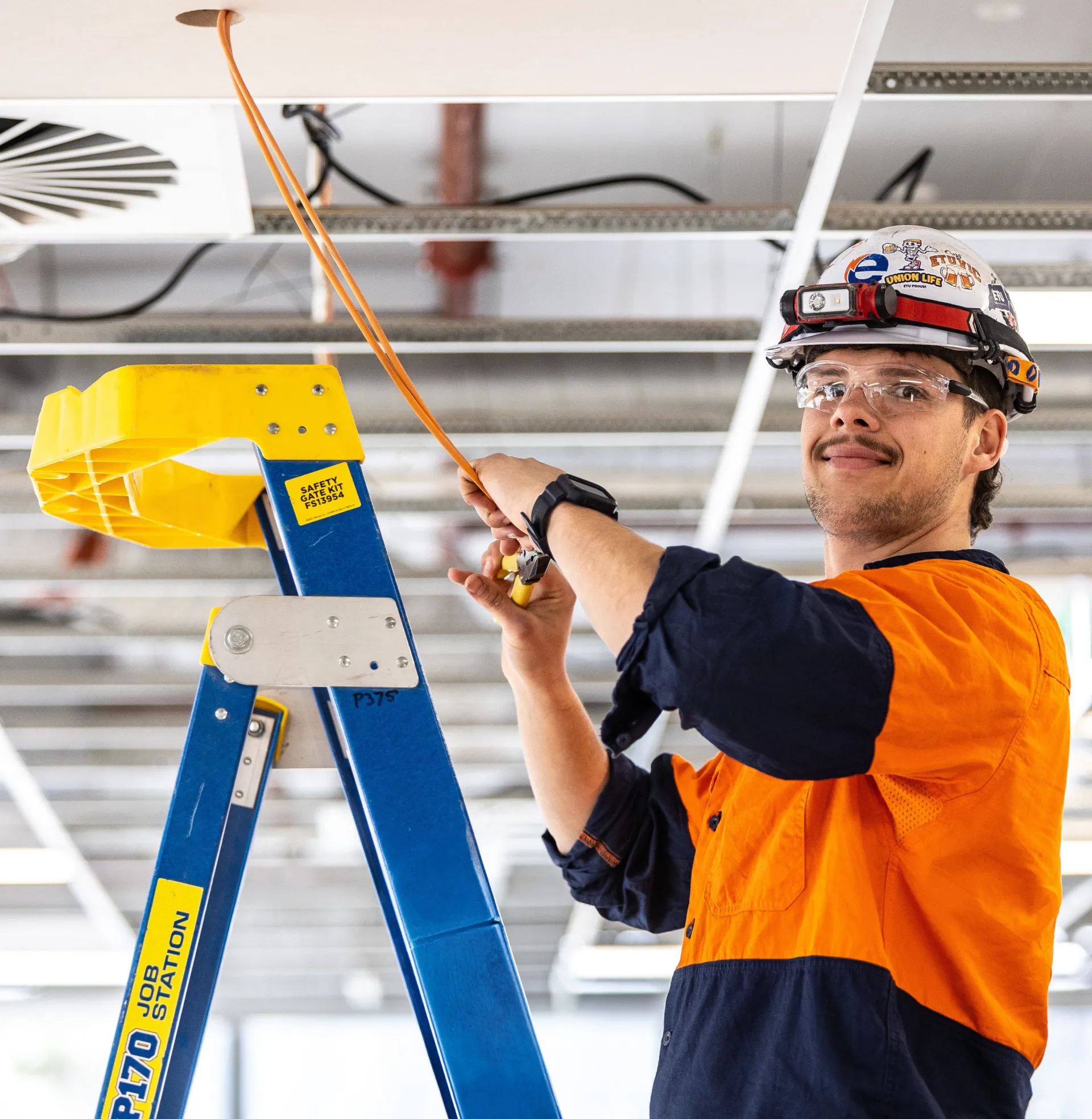What does an electrician do?
Electricians use their technical skills and knack for problem solving to install and test these systems and can diagnose and sort out electrical issues.
They work efficiently and make sure everything is safe.
You’ll find electricians using trade tools like voltage testers, pliers, electrical tape and circuit breaker finders.
The perks of becoming an electrician
Power up your career as an electrician, enjoying hands-on work, strong job demand, excellent earning potential, and opportunities to specialise in a variety of industries.
A career as an electrician would suit someone who is:
- Investigative
- Detail-oriented
- Patient
- Good at maths
- Safety-conscious
- Analytical when it comes to problem-solving
A day in the life of an electrician
A day in the life of an electrician is packed with variety and problem-solving.
Your morning might begin with selecting, cutting, and connecting wires to terminals, followed by laying out precise insulation reference points.
As the day progresses, you could be installing complex control systems, machinery, or electrical switchboards, ensuring everything is set up for optimal performance.
Using advanced test instruments, you’ll locate and fix faults, replacing faulty wiring or components to get systems running smoothly again.
You’ll connect electrical systems to power supplies, test and inspect circuits to ensure compliance with regulations, and even guide users on proper operating procedures to prevent future issues.
Each task contributes to keeping homes and businesses powered, safe, and efficient.
Get answers fast about electrician apprenticeships
An electrician apprenticeship teaches you what is involved in installing and keeping the electrical systems in home and businesses running smoothly.
You'll gain practical experience and a Certificate III in Electrotechnology (Electrician) over four years as an apprentice.
Under the supervision of qualified electricians, you’ll learn how to:
- Install wiring systems, accessories and appliances for low voltage general electrical installations
- Connect electrical circuits
- Solve problems related to electrical equipment
- Use drawings, diagrams, schedules, standards, codes and specifications
It's easy to apply for a electrician apprenticeship through MEGT’s job board.
Step 1. Click “Job Board” in the top right-hand corner of our website
Step 2. Search for ‘electrician apprenticeship’ on our Jobs Board
Step 3. Apply for one of the many apprenticeship opportunities
Step 4. Study and work as an apprentice for four years
Step 5. Land a job! Remember to use your new industry contacts and MEGT's job ready support
Following your electrician apprenticeship, you can complete additional courses to start your own business or work as an industrial electronics electrician in emerging fields like robotics and industrial automation.
Certificate II refers to a nationally recognised qualification that prepares you for the workplace or academic studies. While it’s not required, it may help you to prepare for a Certificate III.










